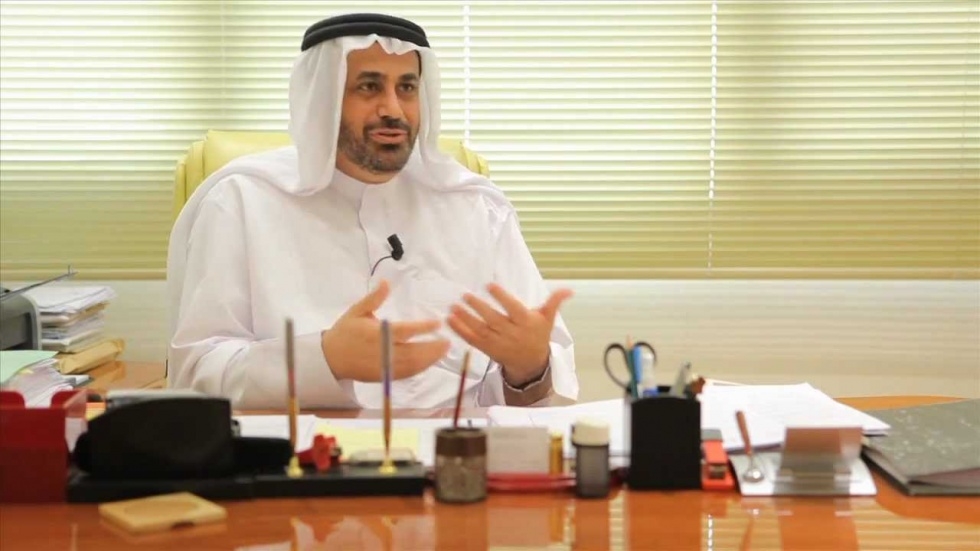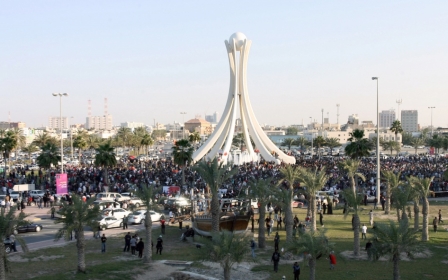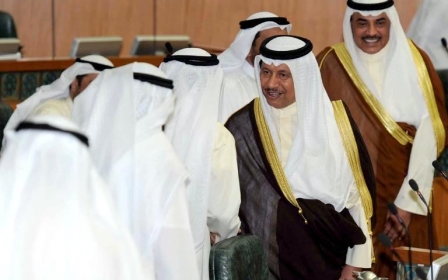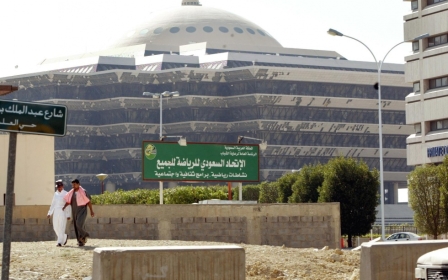Gulf States urged to release thousands of prisoners of conscience

Sunday will see Gulf rights activists mark Gulf Detainee Day with a conference in Australia, in which they will call on oil-rich GCC states to release thousands of prisoners of conscience.
In a statement released on Thursday night, Anwar al-Rasheed, head of the Gulf Forum for Civil Societies, announced their "call for the release of prisoners and detainees who have been put behind bars for simply expressing their opinion."
Rasheed said there are "between 30,000 and 40,000 opinion prisoners and detainees," in the six-nation Gulf Cooperation Council, which comprises Bahrain, Kuwait, Oman, Qatar, Saudi Arabia and United Arab Emirates.
He said the numbers are based on data compiled by Gulf rights activists, international organisations and rights groups.
The overwhelming majority of the prisoners are held in Saudi Arabia followed by Bahrain, Rasheed said.
New MEE newsletter: Jerusalem Dispatch
Sign up to get the latest insights and analysis on Israel-Palestine, alongside Turkey Unpacked and other MEE newsletters
Bahrain has the highest numbers of prisoners per capita in the Middle East.
Rasheed described cases in which prisoners have remained in jail even after serving their full terms.
In other instances, he said people have been stripped of their basic rights, including being subject to travel bans, after they were released.
He called on the Gulf States to keep up with modern developments, and to transition to systems of constitutional monarchy.
Rasheed said his group has arranged with a team of lawyers from Europe and the United States to form a legal team, who plan to visit prisons in Gulf States when governments allow it.
The Gulf Forum for Civil Societies (GFCS) is based in Kuwait, a GCC member state which has long held back from signing up to the controversial Gulf Security Agreement, a pact that would see signatories sharing information about citizens between themselves.
The group's members include exiled activists from the Gulf who now in diaspora in Europe and Australia, according to Ghaleb Jaber, another member of the group.
In addition to the plight of political prisoners in the Gulf, Jaber told MEE that the group wishes to highlight various rights abuses.
He talked of the "grim future" facing Bedouin communities in Kuwait, who are denied citizenship, as well as the effect the 2011 uprising in Bahrain has had on the state of human rights in the Gulf generally.
The Gulf Forum for Civil Societies has also launched a petition addressed to UN Secretary General Ban Ki-moon, calling on him to issue a statement in support of prisoners of conscience in the Gulf States.
Saturday 17 May will see a protest outside the Saudi Arabian embassy in London, where demonstrators will demand that King Abdullah release his four daughters, who say they have been held against their will in a run-down Jeddah palace for over 60 days.
Last October, rights group Amnesty International accused Saudi Arabia of "arbitrary arrests and detention, unfair trials, torture and other ill-treatment over the past four years."
This March, it said "prisoners of conscience" in Bahrain were still behind bars three years after a month-long Shiite-led uprising was thwarted by security forces.
And this week, it said prominent UAE human rights lawyer Mohammed al-Roken was in solitary confinement and at risk of torture.
Roken was one of 69 people jailed for 15 years in July 2013 for plotting to overthrow the regime, a crime for which 94 people were tried.
Middle East Eye delivers independent and unrivalled coverage and analysis of the Middle East, North Africa and beyond. To learn more about republishing this content and the associated fees, please fill out this form. More about MEE can be found here.




